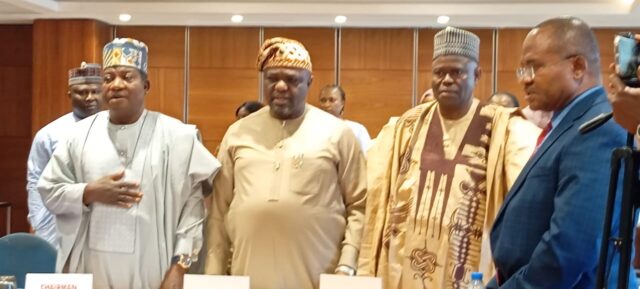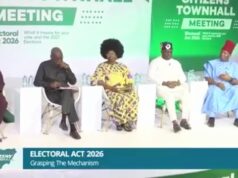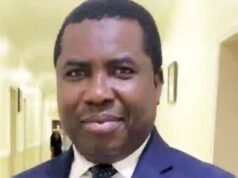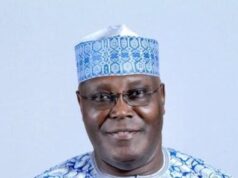By Editor
Ahead of the 2027 General Elections, the National Assembly Joint Committee on Electoral Matters has said that the ongoing engagements towards amending the Electoral Act 2022, was among others clear ambiguities, address present and future developments.
The Chairman Senate Committee on Electoral Matters, who is also a co-chair of Joint Committee on Electoral Matters of the National Assembly, Senator Simon Bako Lalong, said this in Abuja.
He spoke on Wednesday at a one day ‘Review Meeting on Electoral Act Repeal and and Enactment Bill, 2025 organised by the Senate and House of Representatives Joint Committee on Electoral Matters in collaboration with the Policy and Legal Advocacy Centre (PLAC) and UK Foreign, Commonwealth and Development Office (FCDO).
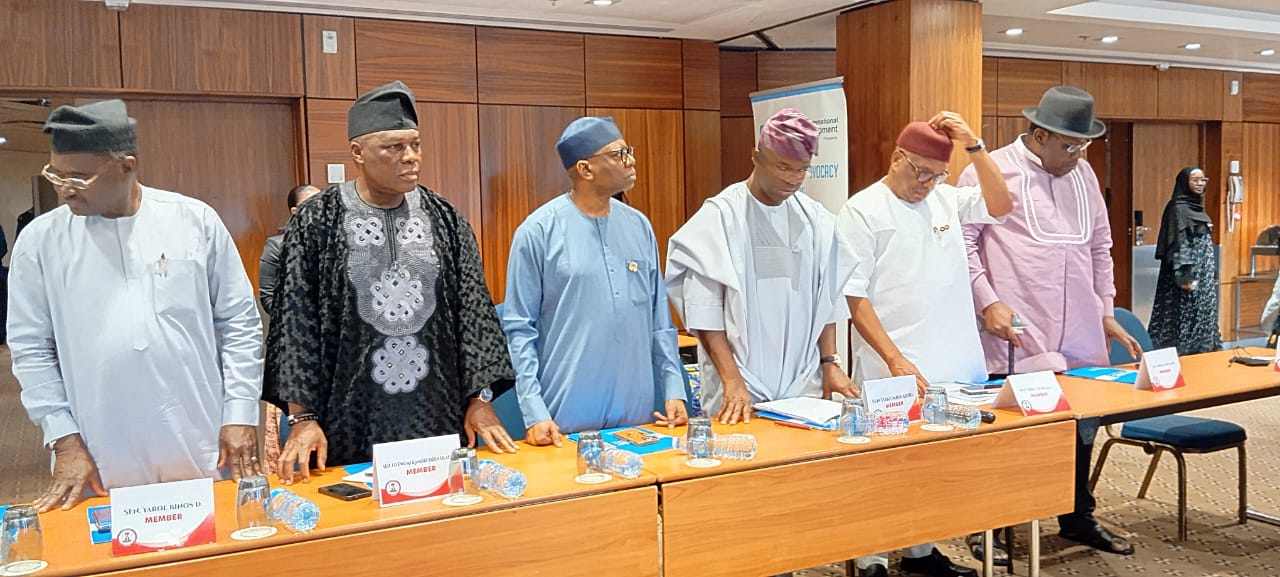
Senator Lalong, said the session was convened to harmonise proposals for the amendment of the Act before final consideration by both chambers of the National Assembly.
“It is our duty to ensure that the Bill not only addresses the present challenges faced in our electoral system, but also anticipates future needs and emerging trends in the political landscape.
“This means eliminating any ambiguities, correcting any deficiencies, and fine-tuning provisions to ensure that they are both legally sound and practically feasible,” Lalong said.
The former Plateau State governor said that the process of ‘cleaning up’ the Bill is not merely a technical exercise as it is also an opportunity to demonstrate the lawmakers commitment to the rule of law, fairness, and to a level playing field for all political actors.
“However, as with any piece of legislation of such magnitude and significance, it requires the careful scrutiny of all sections and subsections, as well as the active participation of those who will be responsible for its implementation,” Lalong said.
He also commended the technical partners, legal experts, and electoral stakeholders for their sustained support and commitment to a reform process that is dear to the hearts of Nigerians.
Also, the co-Chairman of the Joint Committee and Chairman of the House Committee on Electoral Matters, Hon. Adebayo Balogun, said that the committee is working diligently to meet the expectations of Nigerians who are eagerly anticipating the passage of a new Electoral Act in 2025.
The Executive Director of the Policy and Legal Advocacy Centre (PLAC), Clement Nwankwo also commended the Joint Committee for the seriousness with which it is handling the amendment process, describing it as timely and in line with national expectations.
He said that at an earlier meeting in Lagos, the two chairmen and others member agreed on many points, while there were some areas that are required to be revisited.
“The retreat was chaired in Lagos by His Excellency, Senator Seriake Dickson, and several issues were in conversation and deliberated upon, and the report of that was presented to both chairmen. One of the key issues was related to the issue of early voting.
“There was a proposal on having some identified Nigerian security personnel, officials of INEC, accredited domestic observers, accredited journalists, and ad hoc staff of the Commission who — the proposal was to allow them to vote a week or two earlier, and results held, or the counting of the ballot held until the general elections.
“This was not accepted by the committee. It’s a question whether this is going to be revisited during the meeting here today.
“There was also the issue of replacement of Section 18 with a new Section 18, which talks about the replacement of a voter’s card, and whether a downloadable voter’s card was possible. Concerns were raised about the potential for fraud with respect to this, and the committee decided to retain the existing Section 18, subsection one, rather than this new proposal.
“There were also proposals related to Section 47, subsection two, to replace the words “smart card reader” with the words “Bimodal Voter Accreditation System (BVAS),” and the committee deliberated on this, and resolved that it should be retained without any amendment because of the provision that said “any other technological device” Nwankwo said.
According to him, there were issues related to Section 22 — offences of buying and selling voter’s cards — and a new proposal was made respecting this, the committee decided that the provision as-is should be retained and the penalty as-is be retained, which is ₦500,000 or imprisonment for a term not exceeding five years.
Discover more from TheTimes Nigeria
Subscribe to get the latest posts sent to your email.

